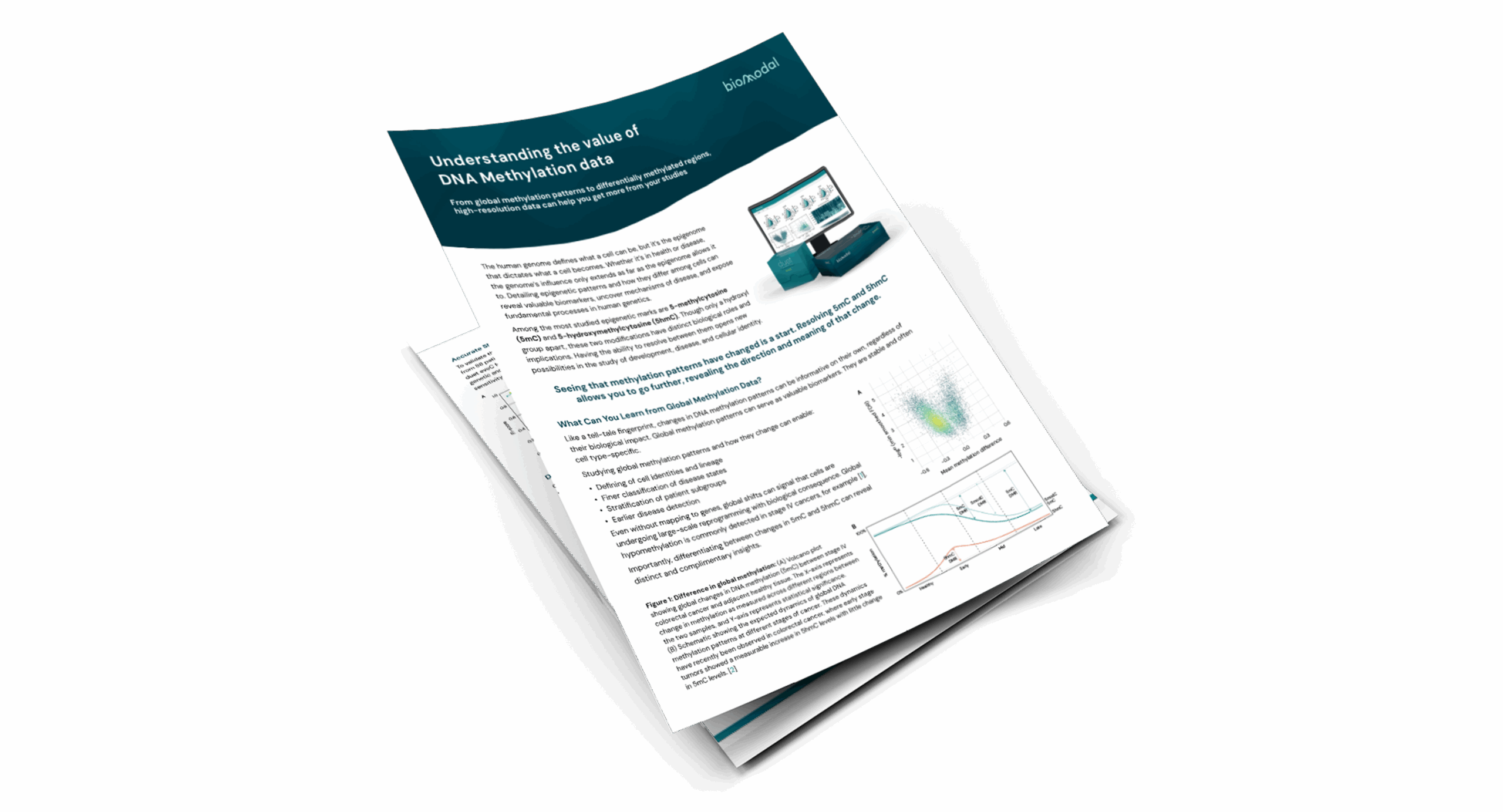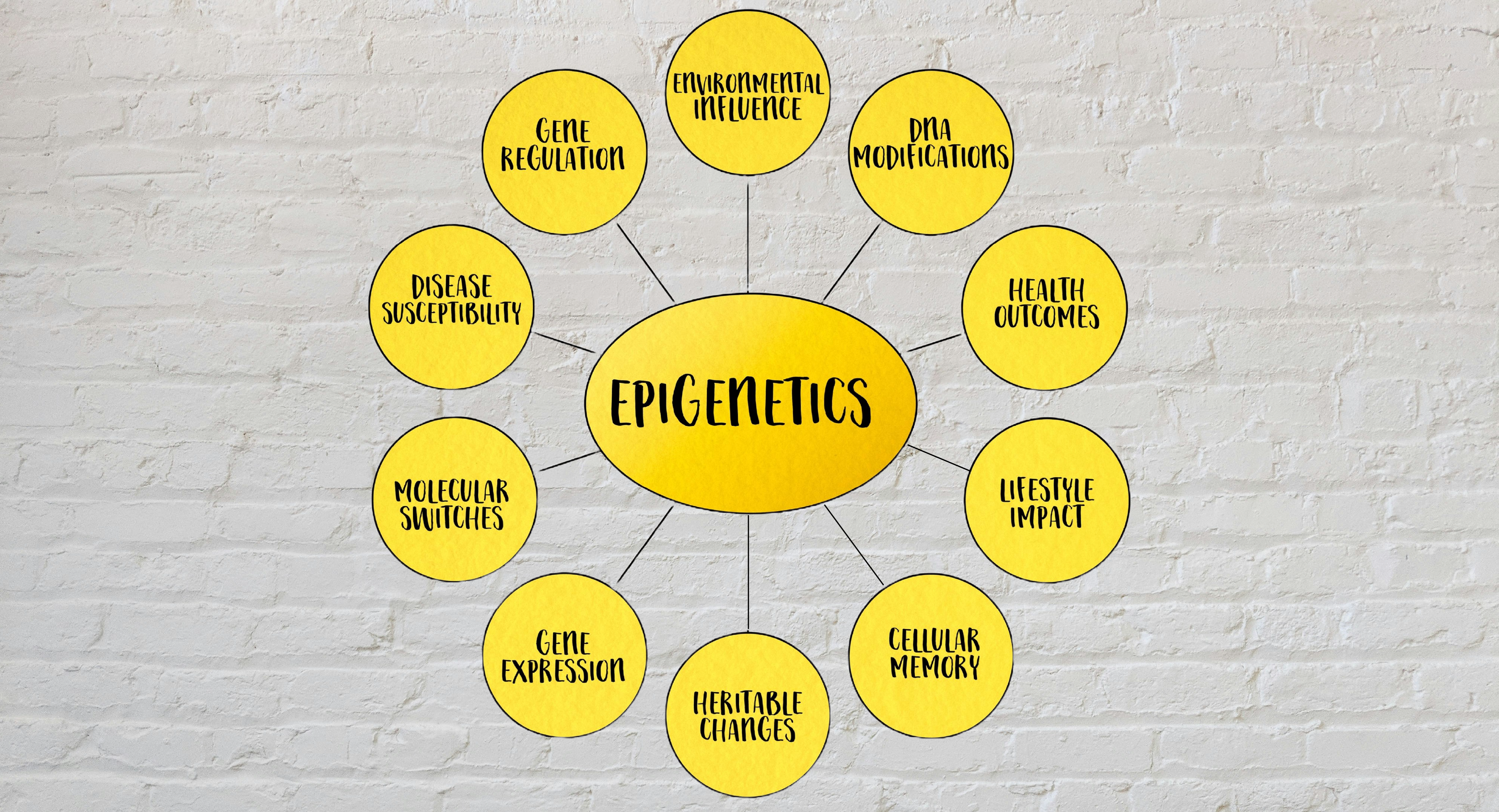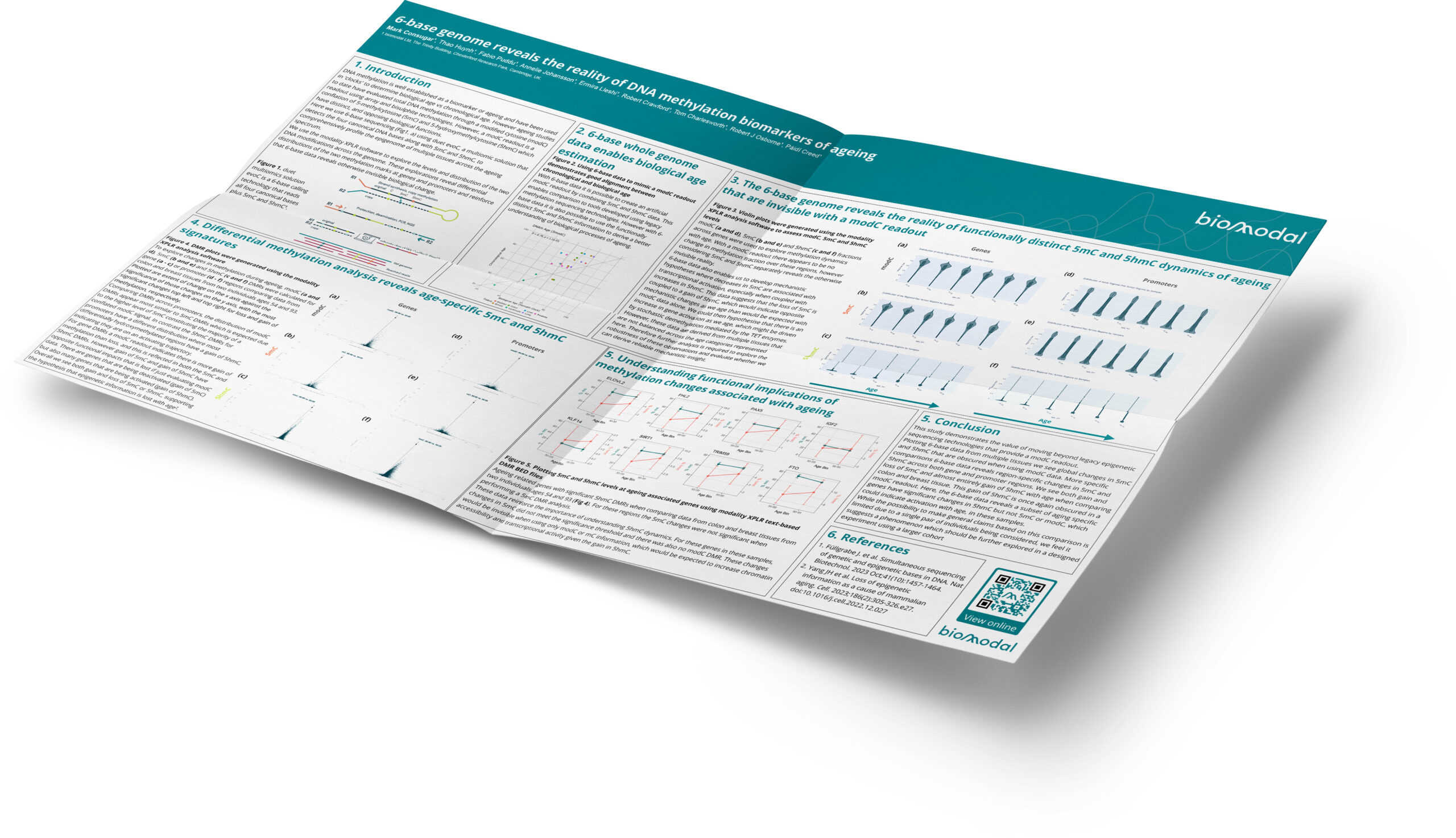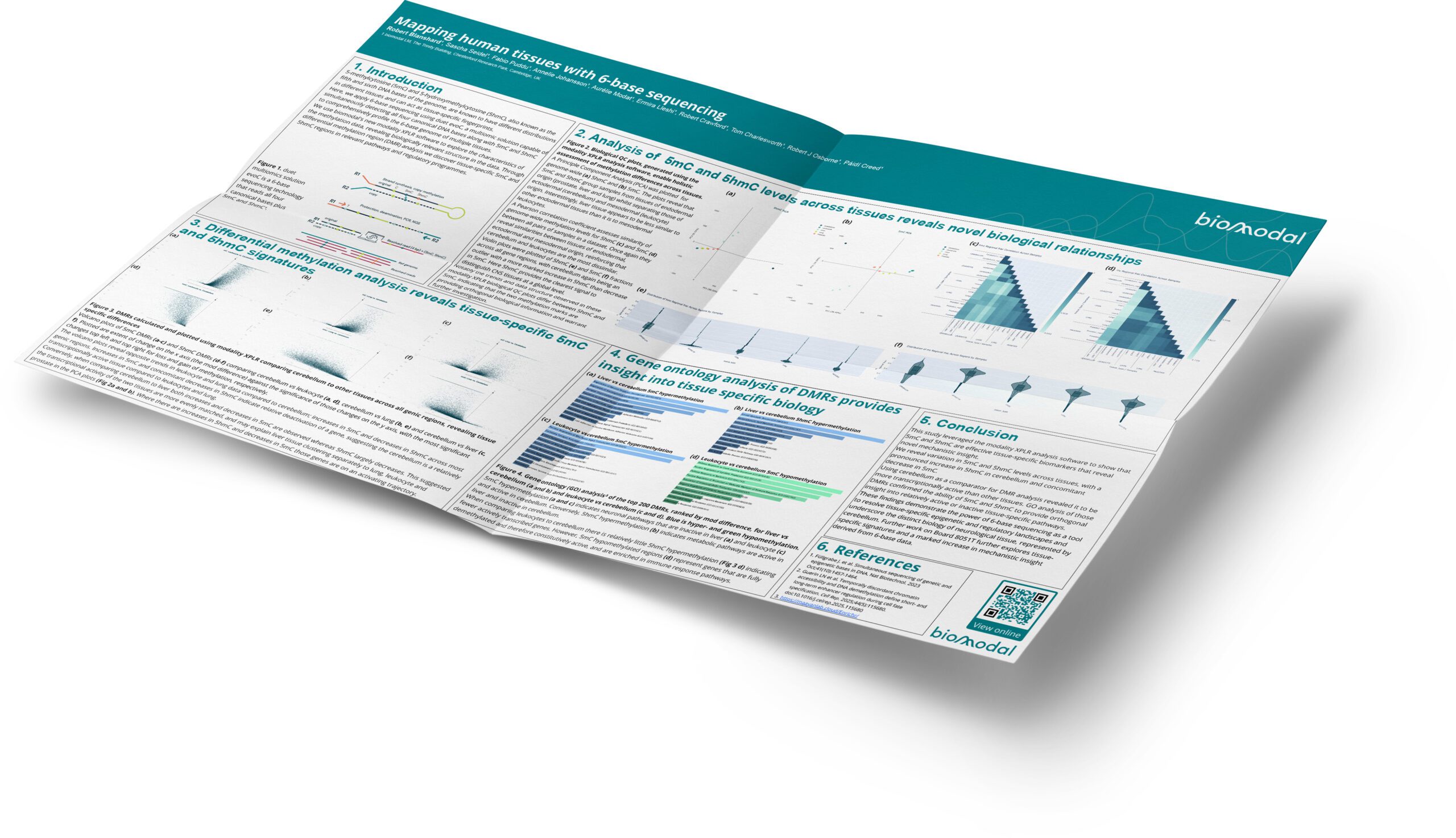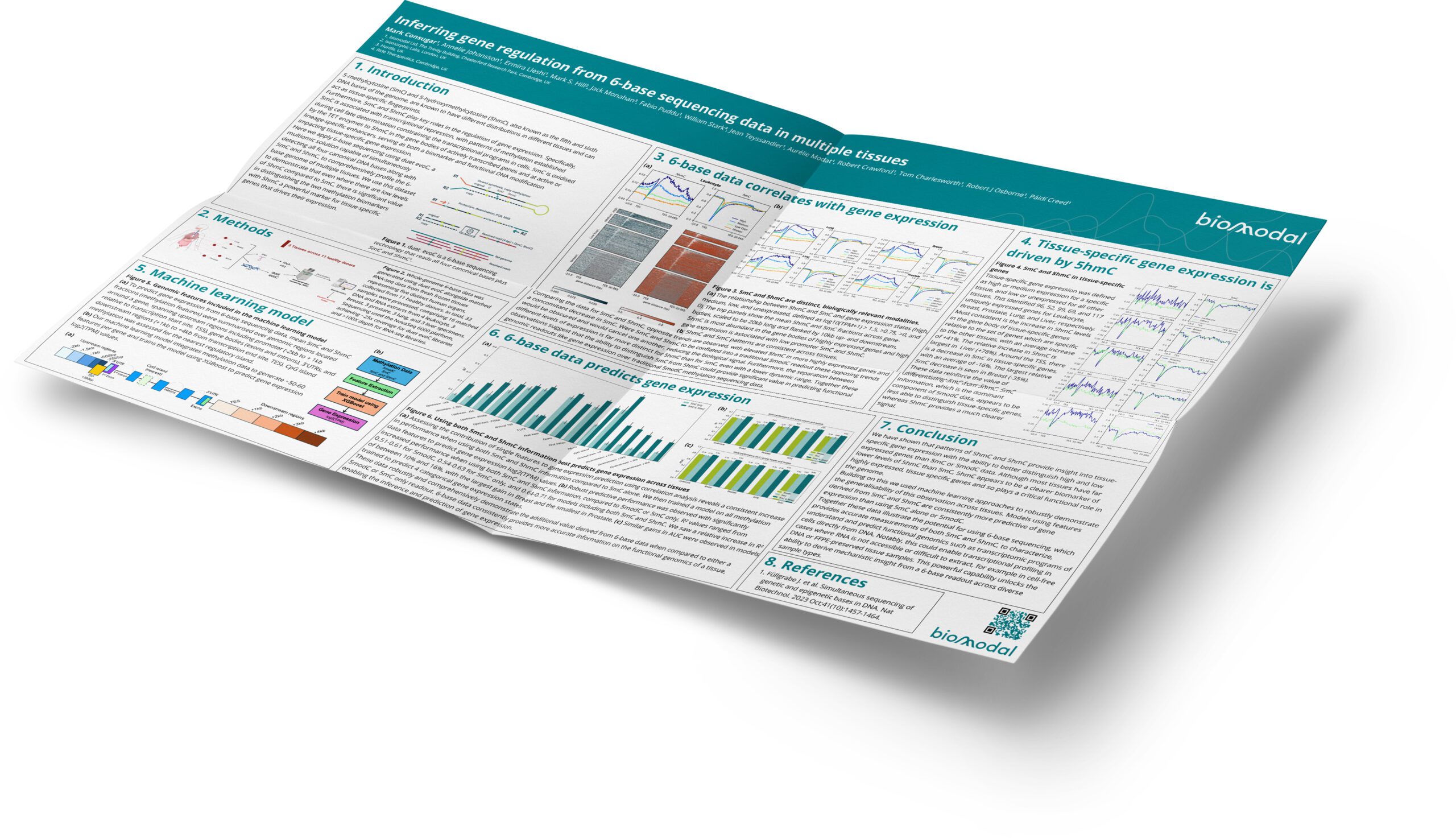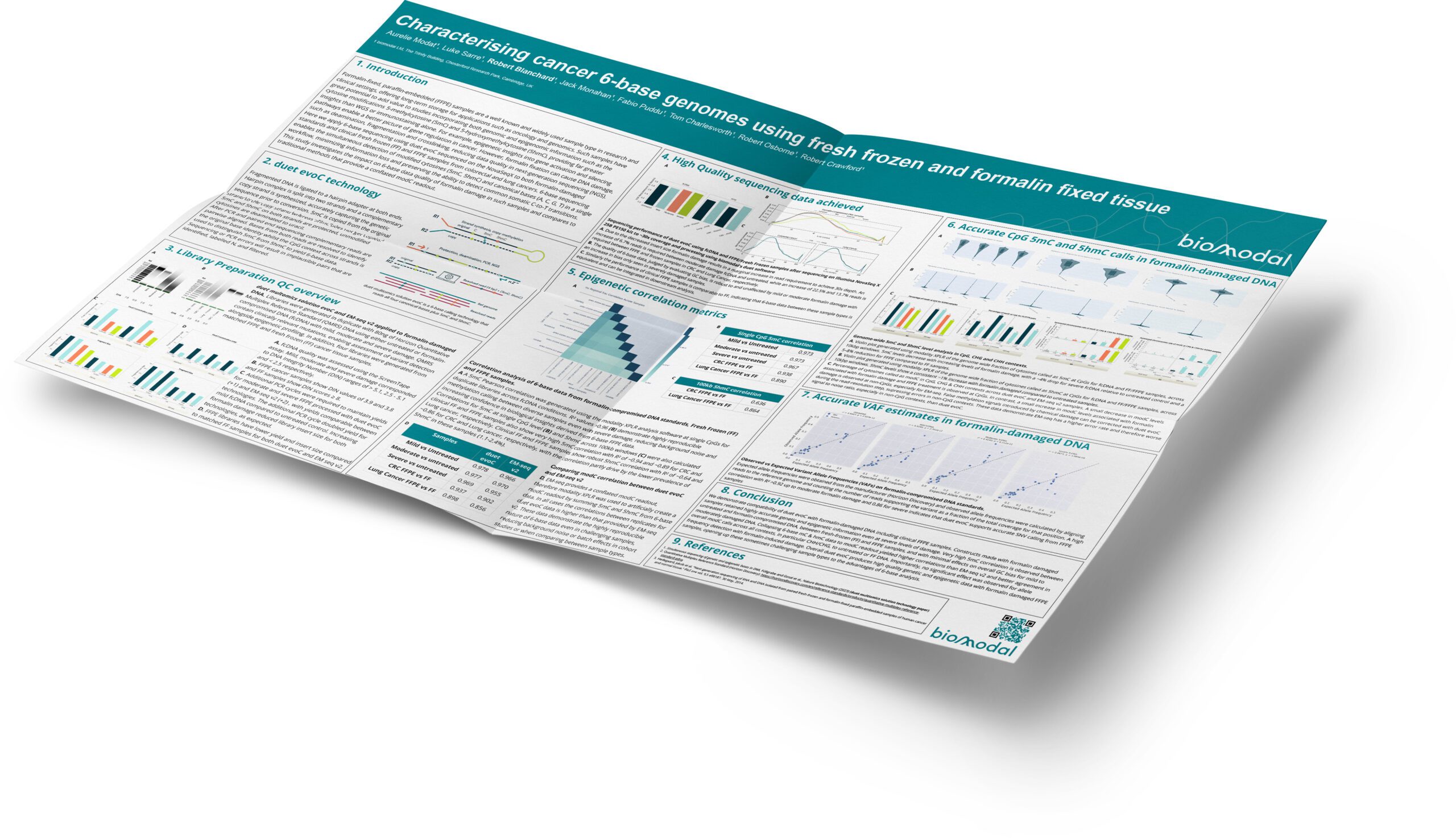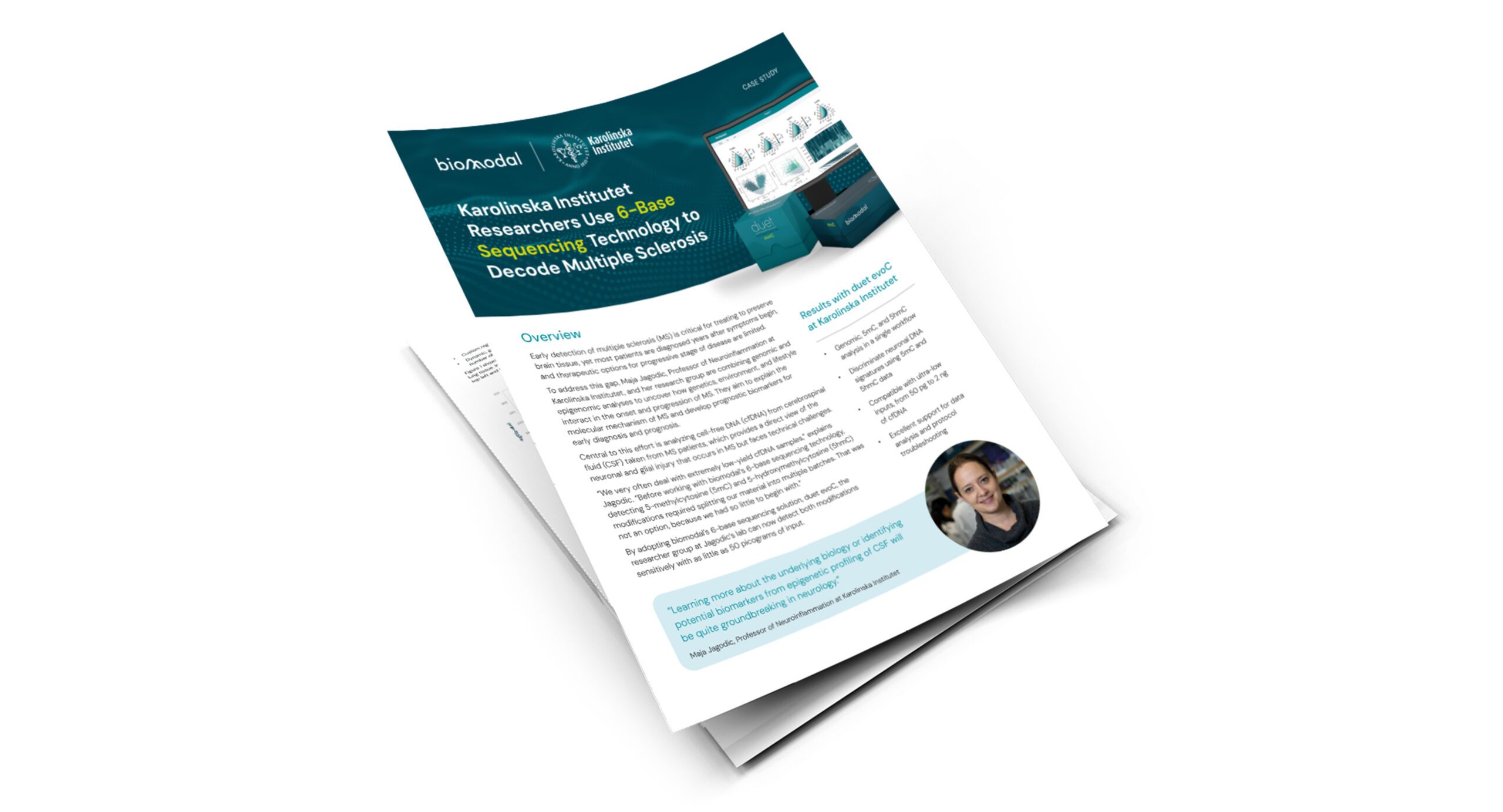Resources
Resource types
- Product sheet
Download the product sheet for modality XPLR today.
- News article
biomodal announced it has filed a lawsuit against Watchmaker Genomics (“Watchmaker”) in the US District Court for the District of Colorado.
- Blog post
Explore the importance of epigenetics and how it shapes health, disease, and precision medicine through gene regulation, and DNA methylation.
- Poster
This study demonstrates the value of moving beyond legacy epigenetic sequencing technologies that provide a modC readout.
- Poster
Using modality XPLR, we reveal variation in 5mC and 5hmC levels across tissues, with a pronounced increase in 5hmC in cerebellum and concomitant decrease in 5mC.
- Poster
Patterns of 5hmC and 5hmC provide insight into tissue-specific gene expression with the ability to better distinguish high and low expressed genes than 5mC or 5modC data.
- Poster
This poster demonstrates compatibility of duet evoC with formalin-damaged DNA including clinical FFPE samples.
- Scientific presentation
modality XPLR is an accessible and scalable software tool designed for scientists and translational researchers to uncover disease-relevant epigenetic signatures, link methylation to gene regulation, and support biomarker discovery—empowering you to identify, classify, and monitor disease.
- Technical note
DMRs serve as powerful biomarkers
for diagnostics, prognostics, and therapeutic response, especially in contexts like cancer, where methylation dynamics can signal early transformation or treatment efficacy.
- Case study
Maja Jagodic, Professor of Neuroinflammation at Karolinska Institutet, and her research group are combining genomic and epigenomic analyses to uncover how genetics, environment, and lifestyle interact in the onset and progression of MS.
- News article
biomodal's Certified Service Provider (CSP) program partners with organisations around the globe to meet the increasing demand for its novel duet multiomics solutions.
- Blog post
Functional genomics is a crucial part of research and development within healthcare because it closes the gap between genetic information and biological function
